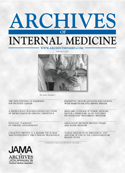
'Are You at Peace?’ One Item to Probe Spiritual Concerns at the End of Life
Abstract
BACKGROUND: Physicians may question their role in probing patients' spiritual distress and the practicality of addressing such issues in the time-limited clinical encounter. Yet, patients' spirituality often influences treatment choices during a course of serious illness. A practical, evidence-based approach to discussing spiritual concerns in a scope suitable to a physician-patient relationship may improve the quality of the clinical encounter. METHODS: Analysis of the construct of being "at peace" using a sample of patients with advanced cancer, congestive heart failure, or chronic obstructive pulmonary disease. Descriptive statistics were used to compare response distributions among patient subgroups. Construct validity of the concept of being "at peace" was evaluated by examining Spearman rank correlations between the item and existing spirituality and quality-of-life subscales. RESULTS: Variation in patient responses was not explained by demographic categories or diagnosis, indicating broad applicability across patients. Construct validity showed that feeling at peace was strongly correlated with emotional and spiritual well-being. It was equally correlated with faith and purpose subscales, indicating applicability to traditional and nontraditional definitions of spirituality. CONCLUSIONS: Asking patients about the extent to which they are at peace offers a brief gateway to assessing spiritual concerns. Although these issues may be heightened at the end of life, research suggests they influence medical decision making throughout a lifetime of care.
Citation:
K.E. Steinhauser, C.I. Voils, E.C. Clipp, H.B. Bosworth, N.A. Christakis, and J.A. Tulsky, "Are You at Peace?’ One Item to Probe Spiritual Concerns at the End of Life" Archives of Internal Medicine, 166(1): 101-105 (January 2006)